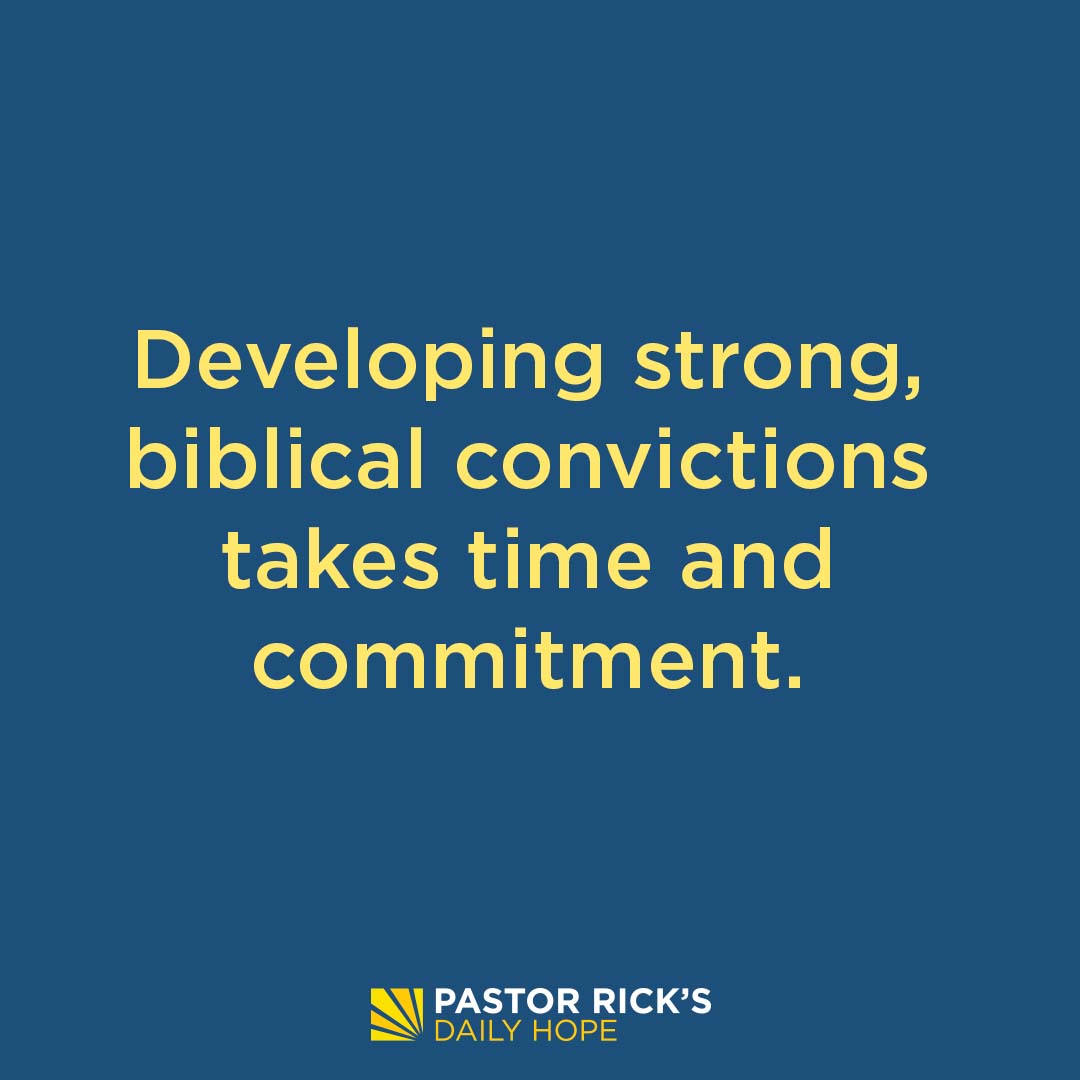Developing Strong Convictions
by Rick Warren — November 14, 2021
From Uncommon Courage

“Now faith is the assurance of things hoped for, the conviction of things not seen."
Hebrews 11:1 (NRSV)
I like the definition of conviction I once heard from the great Bible teacher Howard Hendricks. He said, “A belief is something you will argue about. A conviction is something you will die for.”
Your convictions determine your conduct. They motivate you to take a stand and act according to your values.
When you first become a Christian, you often do things simply because Christians around you suggest or model them. You may pray, read the Bible, and attend church services because of their example.
This is fine for a new Christian; little children learn the same way. However, as you grow, you must eventually develop your own reasons for doing what you do. Those reasons become convictions.
Biblical convictions are essential for spiritual growth and maturity. Ironically, many people today have strong convictions about minor issues, like football or fashion. At the same time, they have weak convictions about major issues—like what is right and what is wrong.
Hebrews 11:1 says, “Now faith is the assurance of things hoped for, the conviction of things not seen” (NRSV).
Developing strong, biblical convictions takes time and commitment. But it’s worth it. In the long run, they’ll help you live a consistent, faith-driven life.


Connect with Pastor Rick Warren